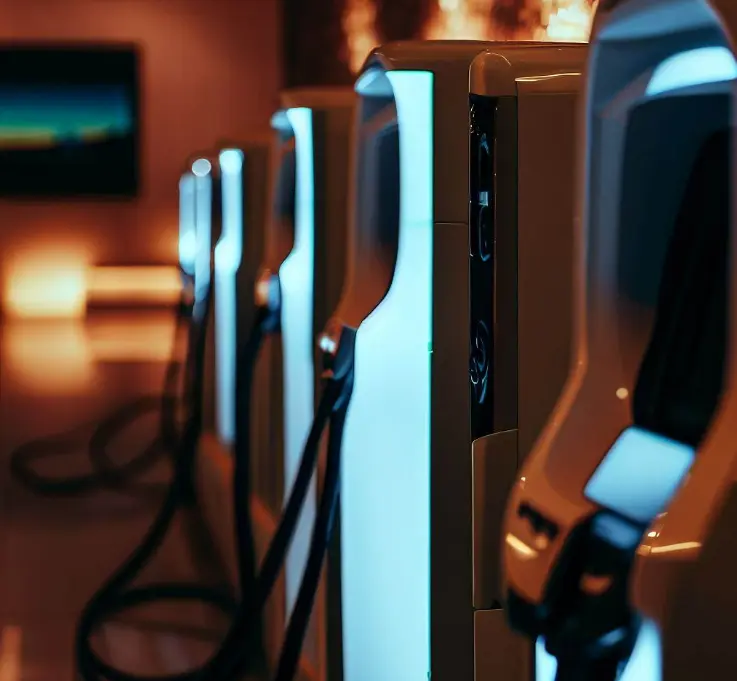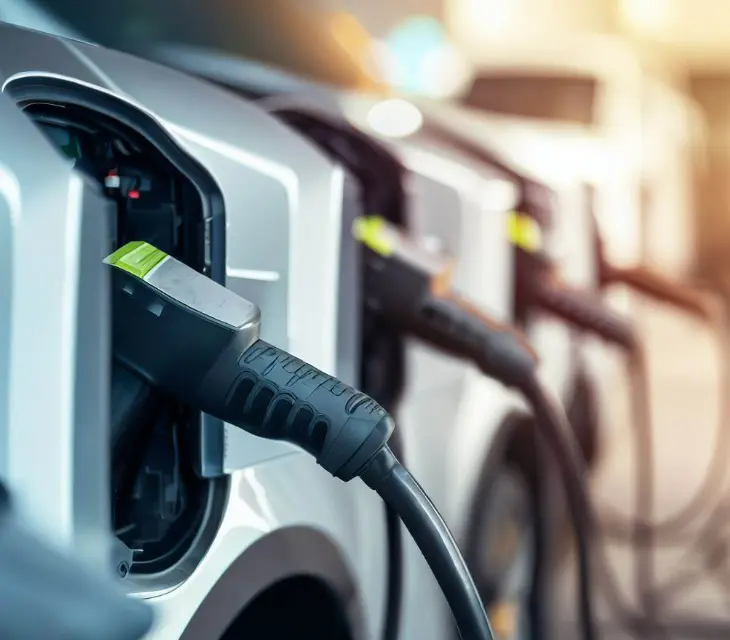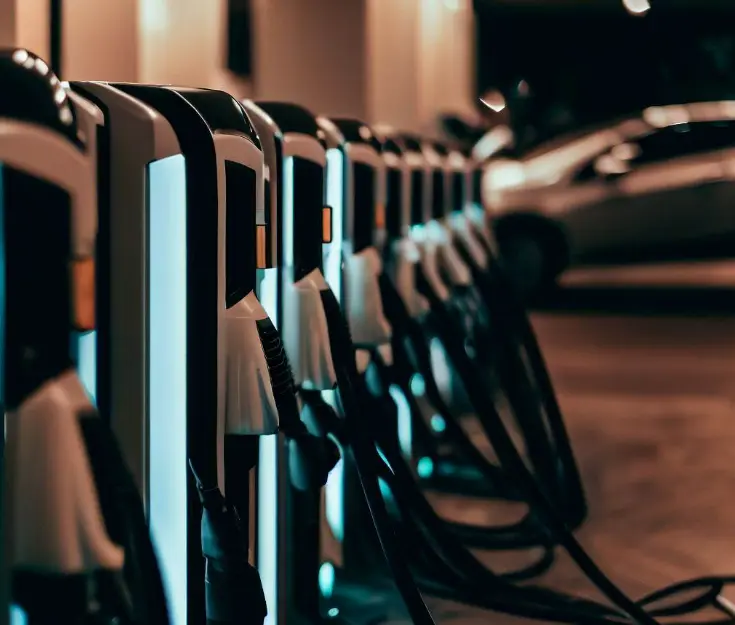Electric vehicles (EVs) are becoming increasingly popular, and hotels are starting to install EV charging stations to meet guest demand. Having the right types of chargers is crucial for providing a positive charging experience for EV drivers. When selecting EV chargers, hotels should consider charging speed, cost, and guest needs. Here are the main types of EV chargers hotels should consider:
Level 1 Chargers
Level 1 EV chargers operate on 120V AC power and typically require a standard 3-prong outlet. They provide charging speeds of 2-5 miles of range per hour of charging.
Pros:
Inexpensive option starting around $300
Uses existing electrical outlets
Provides slow overnight charging
Cons:
Very slow charging speed
Not practical for quick charging needs
Level 1 chargers are best suited for hotel staff parking areas to allow employees to plug in during an 8-hour shift. They do not provide enough charging power for guests who need to quickly recharge their EVs during a short hotel stay. However, Level 1 can work for hotels with extended stay options when guests are parked for multiple days.
Level 2 Chargers
Level 2 EV chargers run on 240V AC power and require installation of charging equipment and a dedicated 40-50 amp circuit. They deliver 10-20 miles of range per hour of charging.
Pros:
Faster charging than Level 1
Allows guests to effectively recharge overnight
Charging stations start around $400
Cons:
Installation costs for wiring upgrades
Still not fast enough for quick top-ups
Level 2 chargers provide a better overnight charging solution for hotels. They can fully recharge an EV battery overnight if the guest is staying for at least 8 hours. Level 2 works well for weekday business travelers who can leave their cars plugged in while working and dining at the hotel. The one downside is that installation costs can be $1000-$2500 depending on electrical upgrades needed.
DC Fast Chargers
DC fast chargers, also called Level 3, offer the fastest charging speeds through 480V DC power delivery. They can charge an EV battery up to 80% in 20-30 minutes.
Pros:
Provides 60-200 miles of range per 20 minutes of charging
Allows guests to quickly top up their EVs
Futureproofs hotel’s charging capabilities
Cons:
Very high equipment and installation costs
Requirement upgrades to electrical service
With charging speeds comparable to filling up at a gas station, DC fast chargers are the best option for hotels catering to road trippers and short-stay travelers. However, they involve a significant upfront investment of $10,000-$40,000 per charging port. Hotels must carefully evaluate guest demand, utilization rates, and electrical capacity before installing DC fast chargers.
Charger Recommendations for Hotels
The optimal EV charging solutions for hotels depend on their guest profiles and locations. Here are some charger recommendations for different types of hotels:
 Downtown Business Hotels
Downtown Business Hotels
Install a combination of Level 2 and DC fast chargers to accommodate both business travelers and weekend tourists. Place Level 2 chargers in secure parking garages for overnight guest charging. Locate multiple DC fast chargers near hotel entrances/exits for quick charging during check-in/out.
Highway Roadside Hotels
Focus more heavily on DC fast chargers to serve road trippers needing to minimize charging downtime. Place at least 4-6 DC fast chargers in a dedicated charging area with amenities like bathrooms, convenience stores, and restaurants to keep guests occupied during short 20-30 minute charging sessions. Level 2 chargers in rear parking areas can provide overflow overnight charging.
Resort Hotels
Resorts should install Level 2 chargers in the majority of parking spaces since guests tend to stay for multiple days. This allows them to take advantage of slower overnight charging. Add 1-2 DC fast chargers near reception for any incoming guests who need a quick boost to make it to their rooms or amenities across large resort grounds.
Budget Hotels
For budget hotels trying to minimize costs, Level 1 chargers in at least 20% of parking spaces can provide a baseline of charging access for guests. As budgets allow, they can be upgraded to Level 2 for faster overnight charging. Add a single DC fast charger outside the lobby for quick top-offs when possible.
Implementing an effective charging solution requires analyzing hotel location, guest behaviors, and budgets. The goal is to reduce EV range anxiety for guests while providing charging speeds that match their expected hotel stays. Hotels should continue monitoring EV charging demand and adjust plans as more guests switch to electric vehicles.
Factors to Consider in Charger Selection
When installing EV chargers, hotels must evaluate a variety of factors including:
Charging Speed Needs
The types of travelers served will determine the charging speed required. Hotels catering to long-stay versus short-stay guests will need different systems.
Number of Charging Stations
Assess the percentage of parking spaces that need EV charging based on market assessment and projected demand. More spaces may be needed in forward-thinking states like California versus low-EV states.
Power Capacity
Evaluate the existing electrical system to ensure there is sufficient power capacity for supporting additional EV charging load.
Charging Network Compatibility
Select chargers that work with major networks like ChargePoint, EVGo, and Tesla to maximize access and functionality for guests.
Future Expansion Capability
Build in capacity for additional charging stations as demand grows. Consider how to scale up charging deployment over 5-10 years.
Monitoring and Management
Use a centralized software platform to remotely monitor system usage and performance, collect data, process payments, and control access if required.
Ongoing Charger Maintenance
Factor in costs for any required maintenance plans and technical support from the charging equipment manufacturer.
Guest Amenities
Provide shade, seating, restrooms, snacks/drinks, and Wi-Fi accessibility to keep guests comfortable and occupied during charging stops.
Signage and Wayfinding
Use clear signage and maps to direct guests to the charging area upon arrival and guide them into/out of spaces.
With proper planning and strategic charger placement, hotels can meet rising guest demand for EV charging while delivering convenience and exemplary service. Hotels that support sustainable transportation will earn loyalty while futureproofing their properties for the accelerating transition to electric mobility. Offering accessible and fast charging tailored to guest needs can provide hotels with a competitive edge.



 Downtown Business Hotels
Downtown Business Hotels